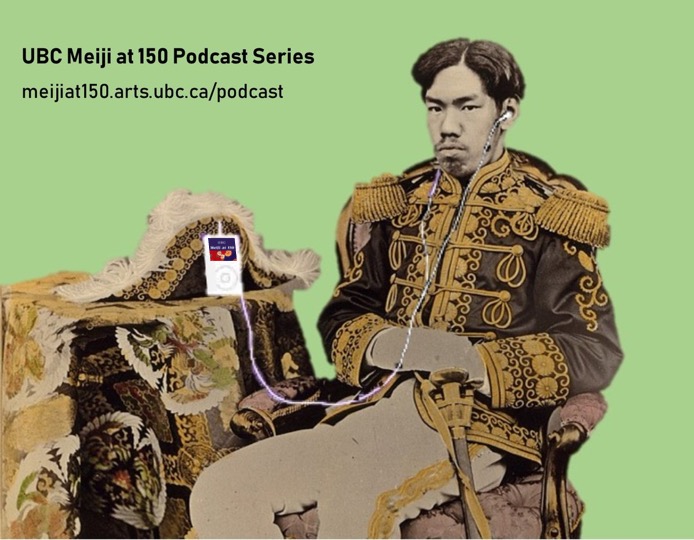
Episode 26 – Dr. Michael Wert (Marquette University)
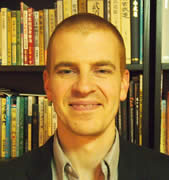
In this episode, Dr. Michael Wert re-enacts the violence of the Meiji Restoration, confronting historiographical narratives of the Restoration as a “non-violent” or “bloodless” revolution. We discuss what happens to the losers of the Restoration, the post-1868 activities and status of ex-Bakufu officials, and the “Long Meiji Restoration” before reflecting on the politics of historical memory and commemoration today.

Tune in to two new Student Podcast episodes. In the first episode, a student catalogues the political and propagandistic messages of popular music in prewar and postwar Japan, from prewar military marches to Occupation-era big band jazz, the 1950’s enka ballads of Misora Hibari, and the 1960s pop melodies of Sakamoto Kyū. In the second, a student sketches the work of famous Edo-period woodblock artist Utagawa Hiroshige, focusing on the print “Fireworks at Ryōgoku Bridge” from the One Hundred Views of Edo series.
Click here to visit the Student Podcast page.

Episode 25 – Dr. Amy Stanley (Northwestern University)
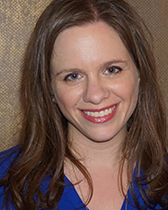 In this episode, Dr. Amy Stanley (Northwestern) outlines the impact of the Meiji Restoration on the practice of prostitution in Japan along with the social positions and roles of prostitutes and Geisha. We discuss distinctions between prostitutes and Geisha, the continuing popularity of “Geisha” and Geisha imagery today, and Dr. Stanley’s recent popular historical work on the city of Edo.
In this episode, Dr. Amy Stanley (Northwestern) outlines the impact of the Meiji Restoration on the practice of prostitution in Japan along with the social positions and roles of prostitutes and Geisha. We discuss distinctions between prostitutes and Geisha, the continuing popularity of “Geisha” and Geisha imagery today, and Dr. Stanley’s recent popular historical work on the city of Edo.

Episode 24 – Prof. Peter Kornicki (University of Cambridge)
 In this episode, Prof. Peter Kornicki challenges the narrative of the Meiji period as revolutionary, instead underlining continuities in literary tastes, practices, and writing through the 1880s. We discuss the origins, meaning of, and alternatives to the term “Restoration,” literary transitions in the mid-Meiji Period, and popular discontentment and protest.
In this episode, Prof. Peter Kornicki challenges the narrative of the Meiji period as revolutionary, instead underlining continuities in literary tastes, practices, and writing through the 1880s. We discuss the origins, meaning of, and alternatives to the term “Restoration,” literary transitions in the mid-Meiji Period, and popular discontentment and protest.

Episode 23 – Dr. Marnie Anderson (Smith College)
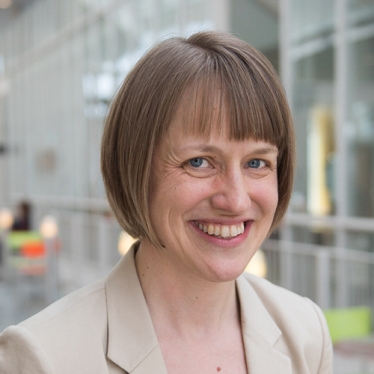 In this episode, Dr. Anderson (Smith College) canvasses the political agency of women’s groups during the Meiji period, changes in women’s place in public society, and women’s active participation in the construction of notions of femininity. We discuss the modern motivations of, and divisions within, actors in the 1880s Popular Rights Movement, and reflect on the ruptures and transformations of the Meiji period.
In this episode, Dr. Anderson (Smith College) canvasses the political agency of women’s groups during the Meiji period, changes in women’s place in public society, and women’s active participation in the construction of notions of femininity. We discuss the modern motivations of, and divisions within, actors in the 1880s Popular Rights Movement, and reflect on the ruptures and transformations of the Meiji period.
JOIN US TODAY to Celebrate a Successful Year of Events at the Meiji at 150 Year-End Reception and Lecture!
Robert H. Lee Alumni Centre
Reception at 5:00; lecture at 6:30 PM.
See below for more details


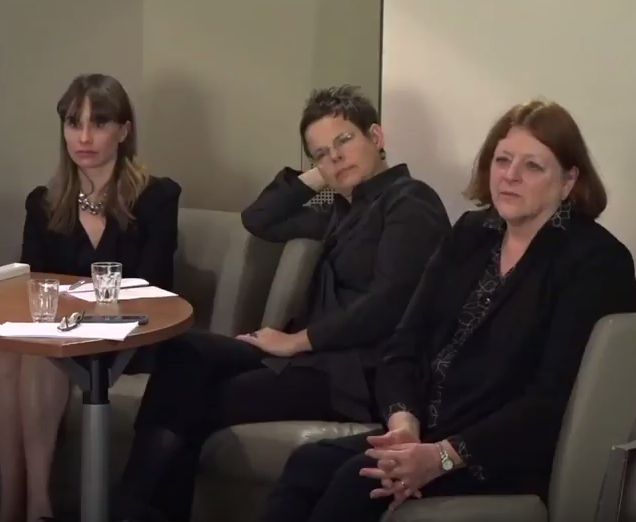 In this episode, Dr. Barbara Molony (Santa Clara), Dr. Sabine Frühstück (UCSB), and Dr. Hillary Maxson (Oregon) trace how gender norms and the position of women and children changed during the Meiji, Taishō, and Shōwa Periods. We deconstruct notions of masculinity, femininity, and childhood, map the unevenness of the “Good Wife Wise Mother” ideology, and debate postwar disruptions of prewar and wartime norms.
In this episode, Dr. Barbara Molony (Santa Clara), Dr. Sabine Frühstück (UCSB), and Dr. Hillary Maxson (Oregon) trace how gender norms and the position of women and children changed during the Meiji, Taishō, and Shōwa Periods. We deconstruct notions of masculinity, femininity, and childhood, map the unevenness of the “Good Wife Wise Mother” ideology, and debate postwar disruptions of prewar and wartime norms.


 Faculty of Art
Faculty of Art
 In this episode, Dr. Amy Stanley (Northwestern) outlines the impact of the Meiji Restoration on the practice of prostitution in Japan along with the social positions and roles of prostitutes and Geisha. We discuss distinctions between prostitutes and Geisha, the continuing popularity of “Geisha” and Geisha imagery today, and Dr. Stanley’s recent popular historical work on the city of Edo.
In this episode, Dr. Amy Stanley (Northwestern) outlines the impact of the Meiji Restoration on the practice of prostitution in Japan along with the social positions and roles of prostitutes and Geisha. We discuss distinctions between prostitutes and Geisha, the continuing popularity of “Geisha” and Geisha imagery today, and Dr. Stanley’s recent popular historical work on the city of Edo. In this episode, Prof. Peter Kornicki challenges the narrative of the Meiji period as revolutionary, instead underlining continuities in literary tastes, practices, and writing through the 1880s. We discuss the origins, meaning of, and alternatives to the term “Restoration,” literary transitions in the mid-Meiji Period, and popular discontentment and protest.
In this episode, Prof. Peter Kornicki challenges the narrative of the Meiji period as revolutionary, instead underlining continuities in literary tastes, practices, and writing through the 1880s. We discuss the origins, meaning of, and alternatives to the term “Restoration,” literary transitions in the mid-Meiji Period, and popular discontentment and protest. In this episode, Dr. Anderson (Smith College) canvasses the political agency of women’s groups during the Meiji period, changes in women’s place in public society, and women’s active participation in the construction of notions of femininity. We discuss the modern motivations of, and divisions within, actors in the 1880s Popular Rights Movement, and reflect on the ruptures and transformations of the Meiji period.
In this episode, Dr. Anderson (Smith College) canvasses the political agency of women’s groups during the Meiji period, changes in women’s place in public society, and women’s active participation in the construction of notions of femininity. We discuss the modern motivations of, and divisions within, actors in the 1880s Popular Rights Movement, and reflect on the ruptures and transformations of the Meiji period.
 In this episode, Dr. Barbara Molony (Santa Clara), Dr. Sabine Frühstück (UCSB), and Dr. Hillary Maxson (Oregon) trace how gender norms and the position of women and children changed during the Meiji, Taishō, and Shōwa Periods. We deconstruct notions of masculinity, femininity, and childhood, map the unevenness of the “Good Wife Wise Mother” ideology, and debate postwar disruptions of prewar and wartime norms.
In this episode, Dr. Barbara Molony (Santa Clara), Dr. Sabine Frühstück (UCSB), and Dr. Hillary Maxson (Oregon) trace how gender norms and the position of women and children changed during the Meiji, Taishō, and Shōwa Periods. We deconstruct notions of masculinity, femininity, and childhood, map the unevenness of the “Good Wife Wise Mother” ideology, and debate postwar disruptions of prewar and wartime norms.